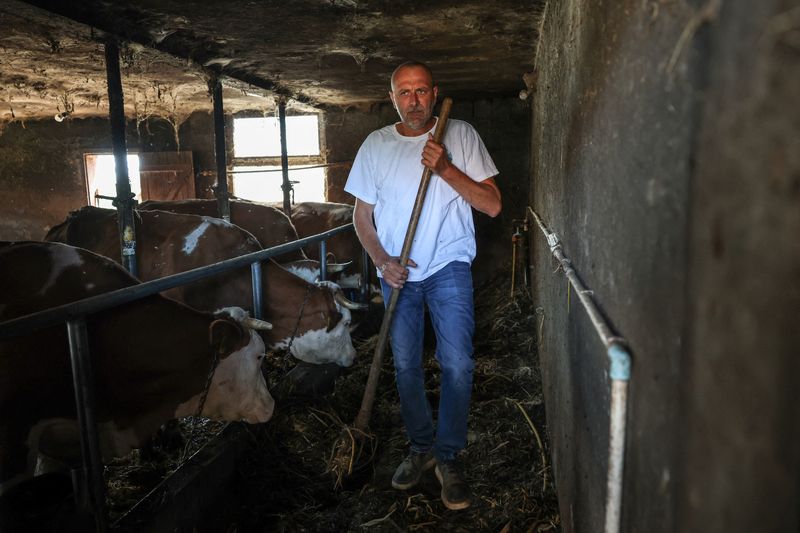
Zlatko Kokanovic, a farmer from Serbia's Jadar region, is determined to stop the development of a lithium project by Rio Tinto $RIO (-0,1%) lithium project, which this week was classified by the European Commission as strategically important to reduce dependence on China for mineral resources.
Lithium is an important component of batteries for electric vehicles and mobile devices. The mine in the Jadar Valley would cover 90% of Europe's lithium needs if it were to be realized.
But like thousands of protesters, including many other farmers, who have tried to block the development of the project in recent years, Kokanovic is concerned about the pollution of farmland in a region where the majority of people make their living from agriculture.
"There are things that money can't buy," Kokanovic, a father of five who is one of the largest milk producers in Gornje Nedeljice and a leading activist in the region, told Reuters.
"I want to tell them (Rio Tinto) not to try to develop the mine, otherwise there will be riots," he added.
Rio Tinto has not given a start date for the project, which is expected to produce 58,000 tons of lithium carbonate annually, but has pledged to develop the mine cleanly.
"The project will be conducted with the highest level of transparency, environmental protection and human rights standards," said Chad Blewitt, Rio Tinto's managing director for the Jadar project.
"The European Union and the European Commission are never substitutes for these high standards, they never abandon them."
Blewitt had told Reuters on Wednesday that the company was reviewing the cost of the project.
Rio Tinto's lithium project has been contested by green groups for years and sparked massive street protests in the EU candidate country Serbia in 2022.
In 2021 and 2022, Serbian environmentalists collected 30,000 signatures on a petition calling on parliament to pass a law stopping lithium exploration in the country.
The government revoked all of Rio Tinto's exploration licenses in 2022 before the Constitutional Court overturned the decision last year and reinstated them.
Government officials claim the mine will boost the Serbian economy.
It is unclear how the protesters can stop a project that has been approved at home and abroad. However, the recent student protests in Serbia, where hundreds of thousands took to the streets and brought down the government, show how strong civil society is in the Balkan country.


